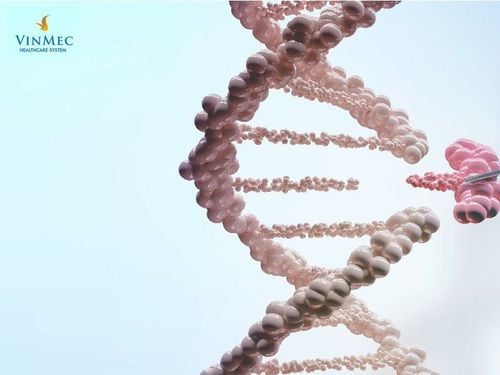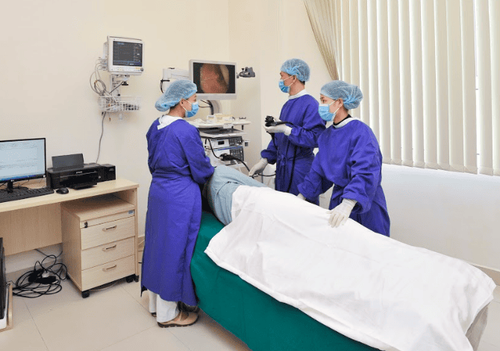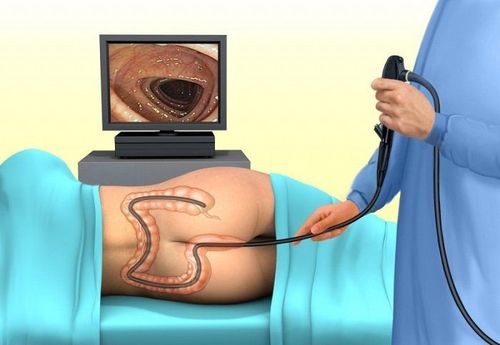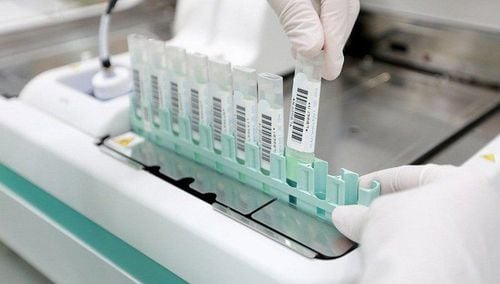This is an automatically translated article.
Article written by Doctor Hoang Quoc Chinh - Research Institute of Stem Cells and Gene Technology - Vinmec Times City International Hospital
Changes (mutations) in genes that increase the risk of cancer can be passed on from generation to generation. This article provides information to answer the question of whether your cancer and that of your family are caused by a genetic mutation.
1. What is hereditary breast and ovarian cancer?
Hereditary cancer is the result of one or more inherited mutations in genes whose normal function is to prevent tumor formation in the body. Inherited mutations increase an individual's risk of one or more types of cancer and are passed on from parents to children. BRCA1 and BRCA2 are the two most common genes that increase the risk of breast and ovarian cancer. Women who carry genetic mutations in either of these genes have a much higher risk of developing breast, ovarian, and some other cancers than the general population. Men with mutations in the BRCA gene have an increased risk of breast and prostate cancer. Both men and women carry mutations in the BRCA gene that increase the risk of pancreatic and skin cancer.
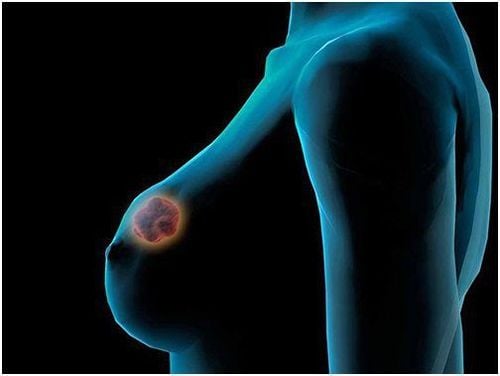
BRCA1 và BRCA2 là hai gen làm tăng nguy cơ mắc bệnh ung thư vú và buồng trứng
Inherited mutations in the genes that cause Lynch and Cowden symptoms, and others including PALB2, ATM, CHEK2 can also increase the risk of breast and/or ovarian cancer, and other cancers again. Genetic counselors can help you be aware of your genetic cancer risk and can offer advice to help you lead a healthy life.
2. Warning signs of breast, ovarian, and other cancers.
You or any of your family members have:
Primary ovarian, fallopian tube or peritoneal cancer Breast cancer at age Cancer Breast Primary ovarian, fallopian tube, or peritoneal cancer Prostate cancer Pancreatic cancer Skin cancer Other inherited cancers such as colon, uterus, and thyroid may be associated with symptoms Lynch and Cowden. A genetic counselor can help you find out if cancer in your family is the result of a genetic mutation.
3. How do I know if I have hereditary cancer?
Can a blood or saliva test tell you if you carry a genetic mutation? Most people do not inherit genetic mutations in the genes that cause cancer, so genetic testing is not recommended for everyone. A genetic counselor can provide you and your family with information about genetic testing, cancer risk, and ways to help you live a better life.
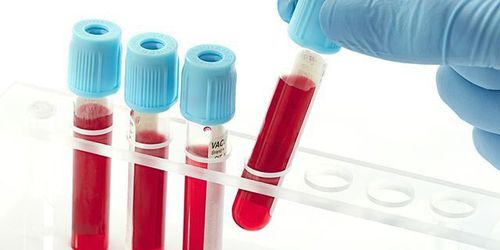
Xét nghiệm máu có thể cho bạn biết liệu mình có mang đột biến di truyền hay không?
The genetic counselor will:
Help you understand hereditary cancers Review your family history to assess and interpret your genetic cancer risk. Describe the benefits and limitations of genetic testing, and discuss whether it is right for you? Ask for the right tests if you want genetic testing. Interpret and explain what the test results mean to you and your family Discuss ways to control your cancer risk and refer you to specialists for follow-up There are many types of genetic testing, so you should talk to a genetic counselor before having genetic testing. Test results can influence decisions about cancer screening, prevention, and treatment, and it's equally important to talk to a genetic counselor after testing. Your test results can also help you qualify for clinical trials. Sharing your test results with loved ones will also help them become aware of their own cancer risk and about options for them to stay healthy.
You should consider gene testing if:
You have ovarian, fallopian tube, or peritoneal cancer. Women of any age diagnosed with these cancers meet the requirements of national recommendations (USA) for genetic counseling and genetic testing. You were diagnosed with breast cancer before age 50, triple negative breast cancer, cancer in both breasts, or breast cancer more than once. Being diagnosed with any of the above types of breast cancer increases your risk of carrying a genetic mutation. You were diagnosed with prostate cancer before age 55 or metastatic prostate cancer. Men who had prostate cancer at a young age or with metastatic prostate cancer are more likely to carry the genetic mutation. You have pancreatic cancer. Pancreatic cancer is very rare and is often associated with genetic mutations. You have at least one close relative with any of these cancers or multiple cancers. Having a close family member with any of the above cancers indicates that you are at risk of carrying a genetic mutation. Multiple members of the same family with cancer also imply genetic mutations that are passed on from generation to generation. At least one family member has tested positive for a gene that increases the risk of cancer. If a member of your family has a positive gene test, it is very likely that you also carry the same mutation in your body.
4. What do my genetic test results mean?
Different gene tests analyze different mutations in different genes, and different mutations are associated with different types of cancer to varying degrees. The meaning of gene testing depends on the type of gene test, and whether the gene test result is negative or positive. This is why you should talk to a genetic counselor before and after testing.
A positive result means a genetic mutation was identified in your test. Your cancer risk depends on which gene is mutated, gender, age, family history, and other factors.
A negative result means there is no genetic mutation in any of the genes analyzed in your test. While this is good news, a negative result cannot provide complete information about your cancer risk. If the results are negative, your cancer risk depends on other factors such as your medical history and family history.
Your test results can provide important information to your loved one about their cancer risk. Therefore, sharing information about genetic testing results and genetic counseling will be very helpful for your family members.
Test results play an important role in choosing methods to detect, prevent, and treat hereditary cancers.
5. How to control cancer risk?
There are three ways to control cancer risk: Early detection screening, medication, and surgery reduce the cancer risk of organs at risk of developing cancer. These measures are not equally effective for all cancers, and each option has its own strengths and weaknesses. Your health care team will help you make a long-term plan for controlling your cancer risk.

Sàng lọc phát hiện sớm ung thư vú và ung thư buồng trứng
For cancer patients, genetic testing can contribute to treatment decisions including surgery, chemotherapy, radiation therapy, immunotherapy, or targeted therapy.
Participate in research to help find better options for diagnosis, prevention and treatment.
Everything we know about hereditary cancer treatment and cancer risk control is the result of research. Researchers are working to find ways to detect, prevent, and treat inherited cancers. Participating in research programs or clinical trials will help advance research.
Please dial HOTLINE for more information or register for an appointment HERE. Download MyVinmec app to make appointments faster and to manage your bookings easily.






